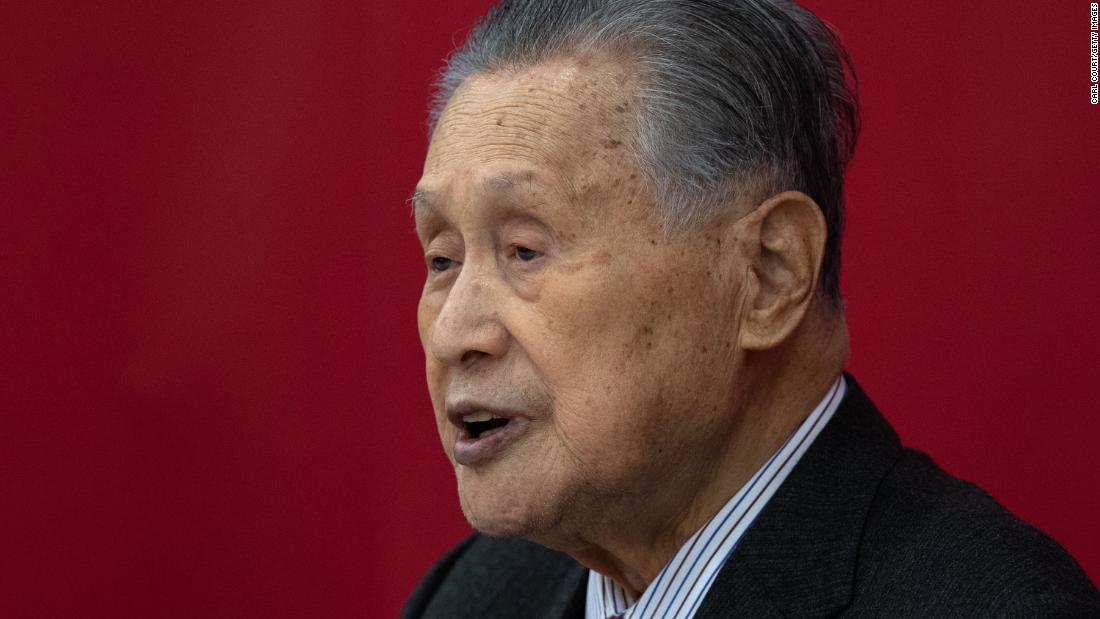Mori expressed his “deepest apologies” on Friday and said he would surrender his resignation later in the day, acknowledging that his “inappropriate statement caused a lot of chaos”.
“The important thing is that the Olympic Games are held in July,” said Mori. “If I am going to be a distraction for the organization of the Games because I am in my position, I think it is a situation that we should avoid.”
Mori, a former Japanese prime minister, has been under pressure since last week, when he said that “board meetings with many women take longer” because “women are competitive – if one member raises his hand to speak, others can to think that they need to talk too “, according to Japanese press reports.
Speaking at a news conference last week, the 83-year-old confirmed that he made the comments behind closed doors and said he was sorry for that. He initially said he was not considering leaving office, but was forced to change course due to continued public outrage in Japan, where women regularly face gender discrimination in the workplace and when seeking positions of power.
The gender gap in Japan is “by far the largest among all advanced economies”, according to the World Economic Forum’s Global Gender Report 2020. The report ranked Japan in 121 out of 153 countries, partly because of its findings that women represent only 5.3% of the board members of listed companies and only 10% of parliamentarians, one of the lowest levels of female political representation in the world.
Mori said on Friday that “I didn’t want (my comments) to neglect women, but I think it was broadcast that way.”
“In fact, I worked hard to allow women to speak out,” said Mori, who heads the Games’ organizing committee. “I named the women to give them the opportunity to state what they wanted to say,” he said. “I have no intention of neglecting women.”
Mori, however, said he was offended by people who called him “rougai”, a Japanese term that can be used to suggest that the elderly are useless and, in fact, an obstacle to society.
The term has become more popular in Japan, which is aging rapidly, where more than 20% of the population is over 65 years old. Birth rates have been declining for years, leaving society with fewer young people and people of working age to support an increasingly older population in need of health care and pensions.
“I don’t like the word,” he said. “The elderly have worked hard to support this society and it is very frustrating when the elderly are neglected.”
The race for the Games
The Olympic Organizing Committee must now find a new leader as it races to open the Games on July 23 in a country struggling to cope with the increasing number of coronavirus cases. The Summer Olympic and Paralympic Games were postponed last year due to Covid-19, and experts said it may not be possible to postpone the event again.
Japanese leaders have promised that the Games will be held despite growing public opposition and rising costs. A survey conducted last month by the national broadcaster NHK found that 77% of people in Japan think the Games should be canceled or postponed, largely due to logistical obstacles that prevent such a massive event from taking place in the midst of public health crisis.
The country’s medical system is overburdened, although it has the highest number of hospital beds per capita in the developed world. Cases have more than doubled in the past two months to more than 406,000, pushing Japan’s medical system to the limit.
As of February 4, more than 8,700 people tested positive for Covid-19 were waiting for a hospital bed or vacancy in an isolation center in 10 prefectures. In the previous week, more than 18,000 people in 11 city halls were waiting, according to city health ministries.
